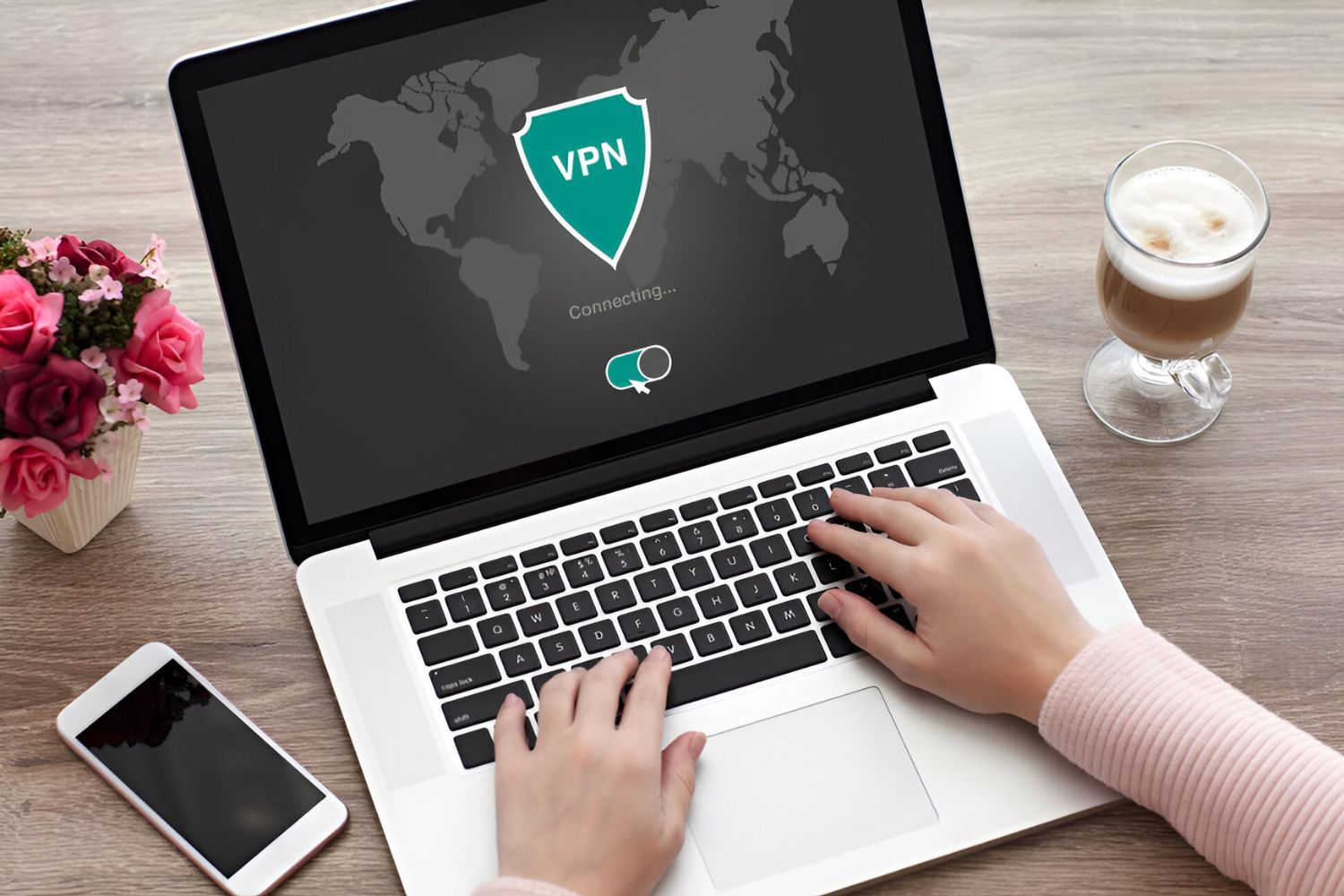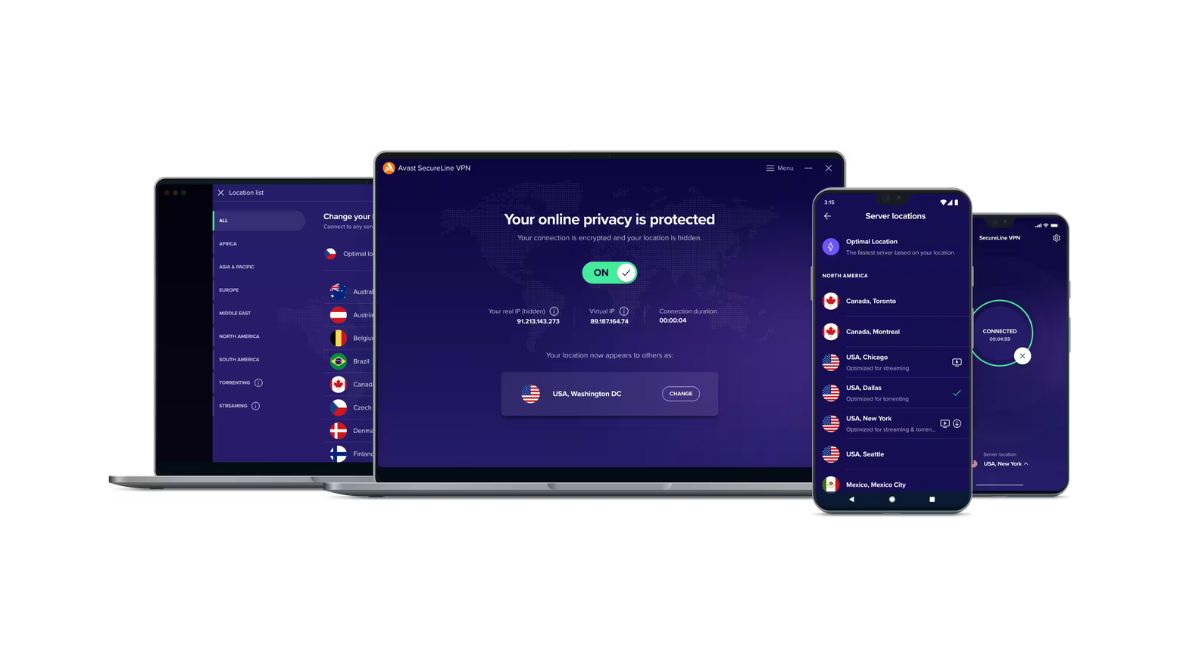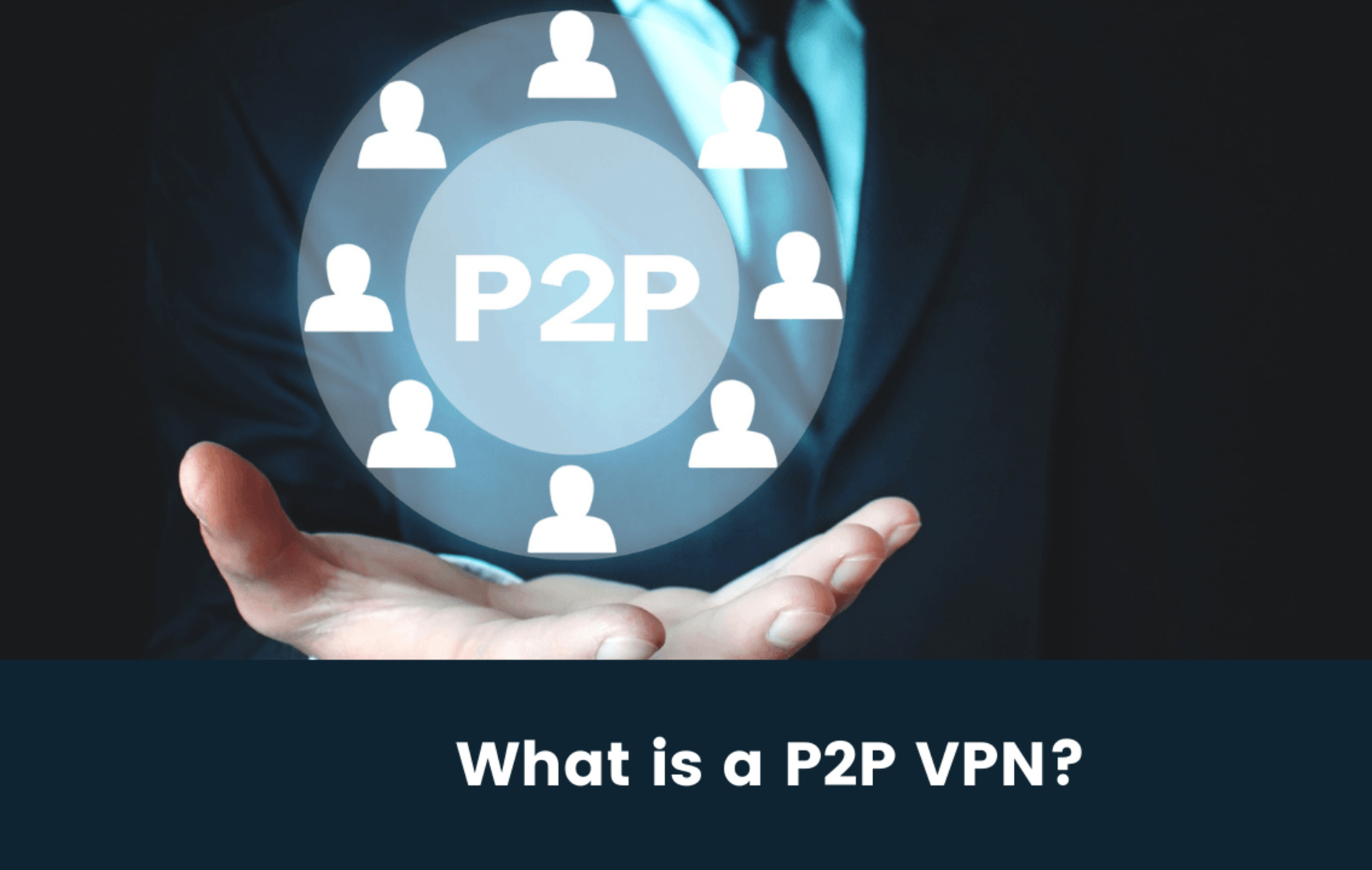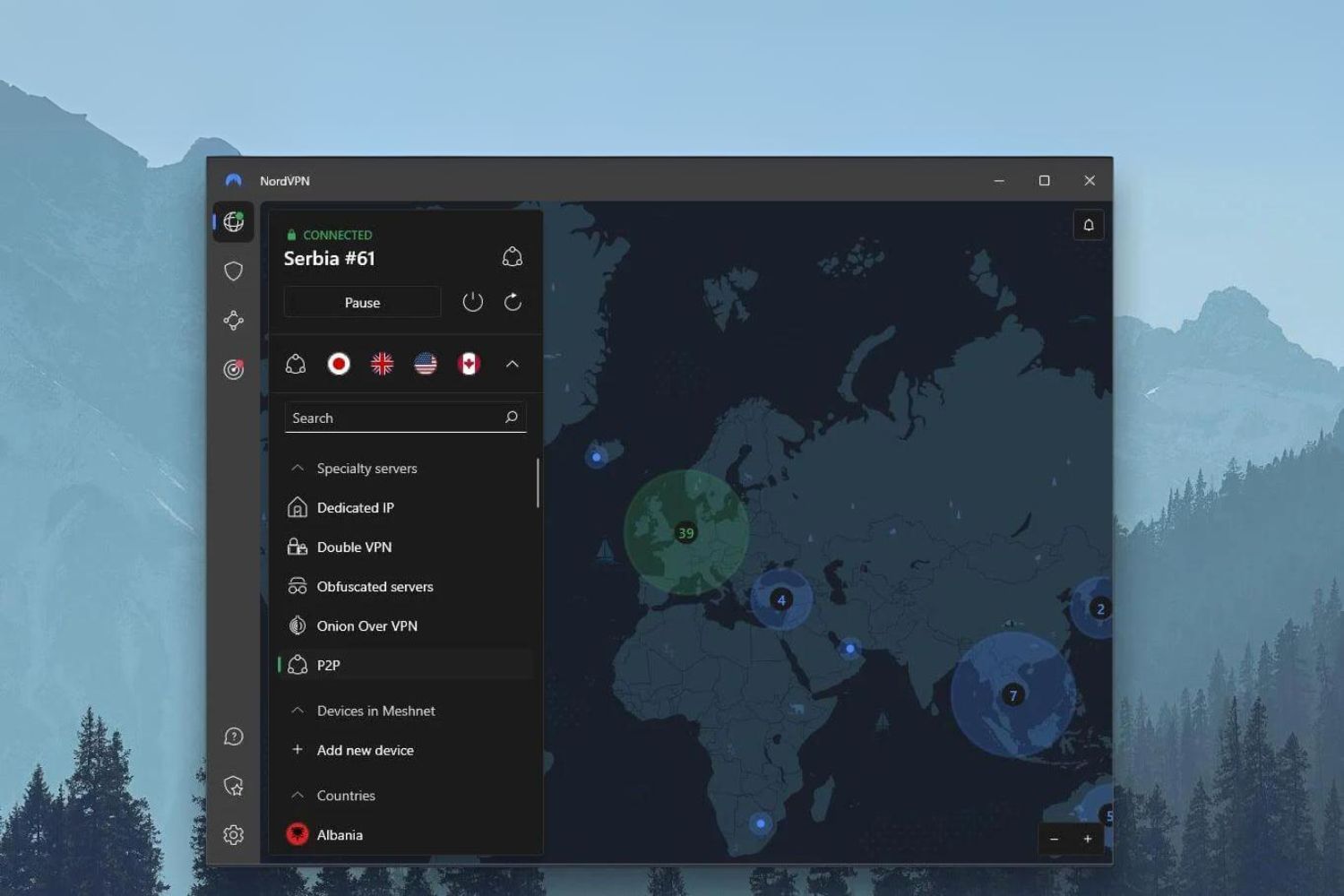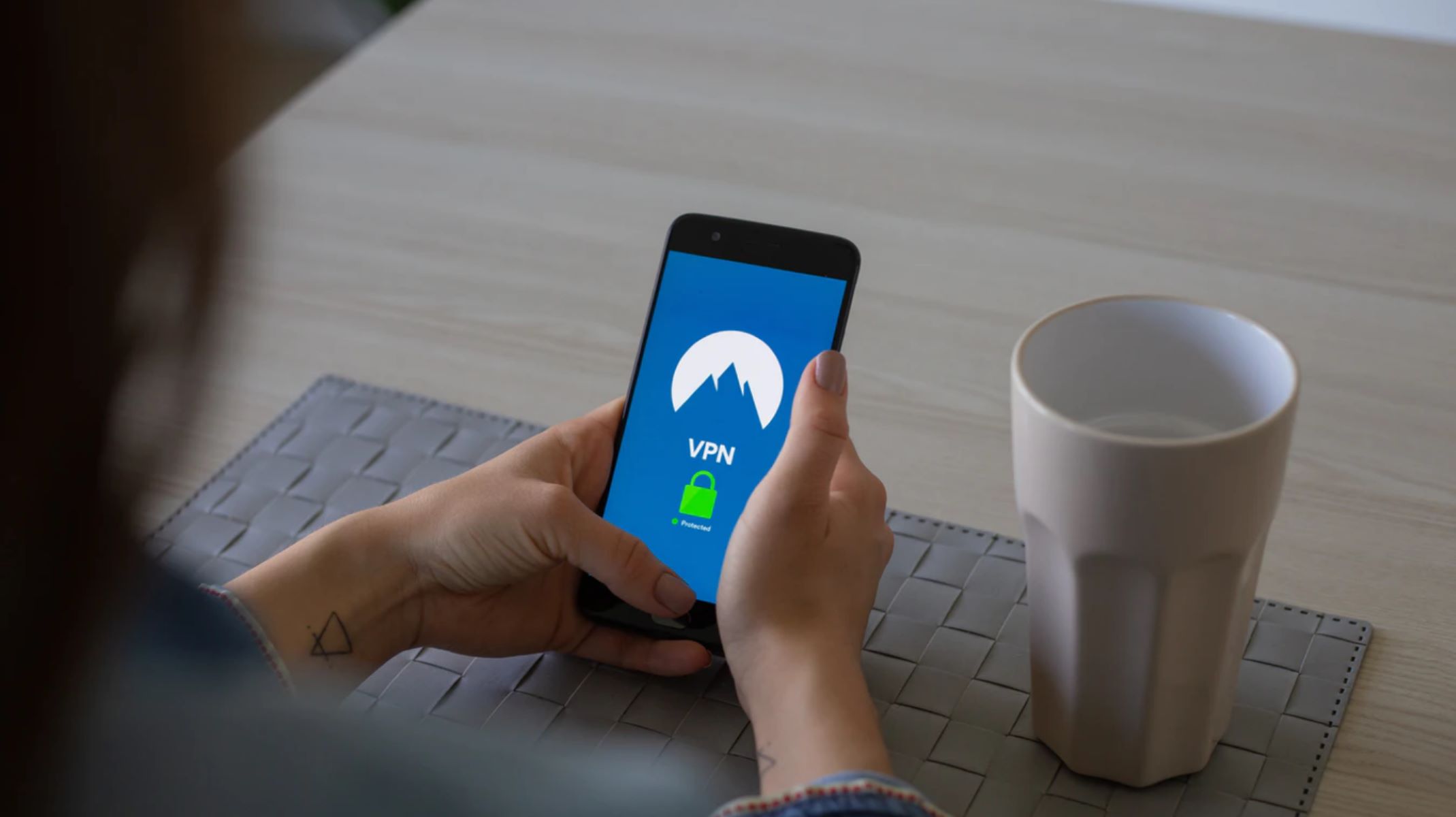Introduction
Virtual Private Networks (VPNs) have become increasingly popular, offering users a secure and private way to browse the internet. One of the key features many users look for in a VPN is its ability to support peer-to-peer (P2P) file sharing. P2P technology allows users to share files directly with each other, bypassing the need for centralized servers.
However, not all VPN providers support P2P, and some even actively discourage or block P2P traffic on their servers due to concerns over copyright infringement and legal implications. In the United States, where internet usage is heavily monitored and subjected to strict copyright laws, it is essential to find a VPN that not only supports P2P but also respects your privacy and keeps you safe from potential legal repercussions.
This article aims to explore the importance of P2P support in VPNs for users in the US and provide an overview of the best VPN providers that support P2P file sharing in this region. Choosing the right VPN can ensure that you can engage in P2P activities securely, anonymously, and in compliance with the laws of the United States.
In the following sections, we will discuss the importance of P2P, the legality of P2P file sharing in the US, and the factors to consider when selecting a VPN for P2P activities. We will also list some of the top VPN providers that support P2P in the US, highlighting their key features and benefits. By the end of this article, you will have a comprehensive understanding of the VPN options available to you for safe and secure P2P file sharing in the United States.
Why is P2P important?
Peer-to-peer (P2P) file sharing has revolutionized the way we share and distribute content over the internet. Unlike traditional file sharing methods that rely on centralized servers, P2P technology allows users to connect directly with each other and share files without the need for intermediaries. This decentralized approach brings several advantages and makes P2P an important tool in the digital landscape.
One of the key benefits of P2P file sharing is its efficiency. By using P2P, users can leverage the combined bandwidth and computing power of multiple peers to download files faster. This distributed approach ensures that the burden of downloading or uploading a file is evenly spread across the network, resulting in faster transfer speeds compared to traditional methods.
Another significant advantage of P2P is its scalability. Since P2P networks do not rely on central servers, they can handle large quantities of data and support a high number of users simultaneously. This scalability is particularly useful when sharing large files or distributing content to a broad audience. P2P networks can efficiently handle the increased load and ensure a smooth and uninterrupted sharing experience.
P2P technology also promotes resilience and redundancy. Since files are shared among multiple users, there is no single point of failure. If one user goes offline or experiences connectivity issues, the network automatically routes the data through alternative paths, ensuring that the transfer continues uninterrupted. This decentralized nature of P2P networks enhances reliability and ensures that the content remains available even in the face of network disruptions.
Furthermore, P2P file sharing facilitates the sharing of rare or hard-to-find content. Users can access a vast array of files and information that may not be readily available through other channels. By connecting with peers who have the desired file, P2P allows users to discover and access a diverse range of content, including books, music, movies, software, and much more, fostering a vibrant and collaborative digital ecosystem.
In summary, P2P file sharing is important because it offers efficiency, scalability, resilience, and promotes the sharing of diverse and hard-to-find content. By leveraging P2P technology, users can take advantage of faster transfer speeds, reliable networks, and access to a wide range of files. Whether you are an individual sharing personal files or a business distributing content, P2P can revolutionize the way you share and access information in the digital age.
The legality of P2P in the US
When it comes to peer-to-peer (P2P) file sharing, understanding the legal landscape is crucial, especially in the United States. P2P technology itself is legal, as it is simply a method of sharing files between users. However, the legality of the files being shared and the actions of the users engaging in P2P activities can vary and have significant implications.
The primary concern surrounding P2P file sharing is copyright infringement. Many P2P networks have been notorious for hosting and facilitating the unauthorized sharing of copyrighted material, such as movies, music, software, and books. Engaging in the sharing or downloading of copyrighted content without the permission of the copyright holder is illegal in the United States and can lead to severe penalties.
In response to the rampant copyright infringement facilitated by P2P networks, the US government has passed laws to protect intellectual property rights and combat piracy. One of the most significant pieces of legislation in this regard is the Digital Millennium Copyright Act (DMCA). The DMCA provides a legal framework for copyright holders to report and request the removal of infringing content from online platforms.
Under the DMCA, internet service providers (ISPs) are obliged to cooperate with copyright holders and take action against users who engage in copyright infringement. This cooperation often involves monitoring network traffic, identifying users involved in sharing copyrighted content, and issuing warnings or terminating their internet service.
While P2P technology itself is not illegal, using P2P networks to share copyrighted material without permission is a breach of copyright law. It is crucial to stress that the responsibility for ensuring legal file sharing lies with the users. If you choose to engage in P2P activities, it is essential to abide by copyright laws and only share files that you have the right to distribute or share freely.
To protect yourself while engaging in P2P file sharing, it is highly recommended to use a reputable VPN service. A VPN can help safeguard your privacy by encrypting your internet traffic, making it difficult for your ISP or any other prying eyes to monitor your online activities. Additionally, a VPN can assign you a different IP address, making it harder to trace your online actions back to your identity.
Remember, the legality of P2P file sharing in the US depends on the content being shared and the permissions granted by the copyright holders. Always ensure that you are aware of and respect copyright laws when engaging in P2P activities to avoid legal consequences.
Factors to consider when choosing a VPN for P2P in the US
Selecting the right Virtual Private Network (VPN) for peer-to-peer (P2P) file sharing in the United States requires careful consideration of several key factors. Ensuring that your chosen VPN provider meets specific criteria will help you enjoy a secure and optimized P2P experience. Here are the factors to consider when choosing a VPN for P2P in the US:
1. P2P Support: The most crucial factor is to choose a VPN that explicitly supports P2P file sharing. Not all VPNs allow or support P2P activities on their servers, and some may even restrict or throttle this type of traffic. Look for a VPN provider that explicitly states its support for P2P file sharing to ensure a smooth and unrestricted experience.
2. Bandwidth and Speed: P2P file sharing often involves large file transfers, so it’s essential to have sufficient bandwidth and fast connection speeds. Check if the VPN provider offers unlimited bandwidth and high-speed servers to ensure efficient downloading and uploading of files.
3. Server Locations: The geographic location of the VPN servers plays a significant role in the quality of your P2P experience. Choose a VPN provider with servers located strategically, preferably in countries with lenient copyright laws and robust online privacy protections. This can help ensure faster connections and reduce the risk of legal complications.
4. Logging Policy: A VPN’s logging policy is crucial for maintaining your privacy and anonymity while engaging in P2P activities. Look for a VPN provider that has a strict no-log policy, meaning they do not retain any logs of your internet activities. This ensures that your P2P file sharing remains private, and there is no potential for your data to be compromised.
5. Security and Encryption: P2P file sharing involves sharing files with multiple peers, which can expose your network to potential security threats. Choose a VPN that offers robust encryption protocols, such as OpenVPN or AES-256, to secure your P2P connections. Additionally, features like a kill switch and DNS leak protection can further enhance your security and privacy.
6. User-Friendly Interface: A user-friendly interface can make the VPN experience more enjoyable and hassle-free. Look for a VPN provider that offers an intuitive and easy-to-use interface, allowing you to connect to P2P servers quickly and efficiently.
7. Customer Support: In case you encounter any issues or have questions related to the VPN service, reliable customer support is essential. Choose a VPN provider that offers 24/7 customer support through various channels like live chat, email, or ticketing systems, ensuring prompt assistance whenever you need it.
By considering these factors, you can make an informed decision when choosing a VPN for P2P file sharing in the US. It’s crucial to select a VPN that meets your specific requirements in terms of P2P support, bandwidth and speed, server locations, logging policy, security measures, user-friendly interface, and customer support. Doing so will help you enjoy a secure and seamless P2P experience while protecting your privacy and adhering to the legal requirements in the United States.
VPNs that support P2P in the US
When it comes to selecting a Virtual Private Network (VPN) for peer-to-peer (P2P) file sharing in the United States, it’s crucial to choose a provider that explicitly supports this type of activity. To help you make an informed decision, here are some VPNs that are known to support P2P file sharing in the US:
1. VPN Provider A: VPN Provider A is renowned for its P2P support and fast connection speeds. It offers a vast network of servers spread across multiple countries, including US-based servers. With unlimited bandwidth, robust encryption protocols, and a strict no-log policy, VPN Provider A ensures a secure and private P2P experience.
2. VPN Provider B: VPN Provider B is another excellent choice for P2P enthusiasts in the US. It boasts numerous servers strategically located around the world, including high-speed servers in the US. With its user-friendly interface, advanced security features, and reliable customer support, VPN Provider B provides a seamless and secure environment for P2P file sharing.
3. VPN Provider C: VPN Provider C is a popular choice for P2P users seeking a secure and unrestricted experience. With its comprehensive P2P support, optimized servers for file sharing, and high-speed connections, VPN Provider C provides a reliable and efficient platform for downloading and uploading files. Its strict no-log policy and advanced security features further enhance privacy and protection.
4. VPN Provider D: VPN Provider D offers robust P2P support and a vast network of servers, including servers located in the US. With its unlimited bandwidth and fast speeds, users can enjoy seamless downloading and uploading of files. VPN Provider D also emphasizes user privacy with its no-log policy and strong encryption protocols, making it a reliable choice for P2P activities in the US.
These VPN providers have established themselves as trustworthy options for P2P file sharing in the US. However, it’s essential to note that the VPN landscape is constantly evolving, and it’s always advisable to conduct thorough research to determine the most suitable VPN provider based on your specific needs and preferences.
Remember to consider factors such as P2P support, server locations, bandwidth and speed, logging policies, security features, user-friendliness, and customer support when evaluating VPN options. By doing so, you can ensure a secure and optimized P2P experience while adhering to the laws and regulations in the United States.
VPN Provider A
VPN Provider A is a leading VPN service that is highly regarded for its support of peer-to-peer (P2P) file sharing in the United States. With a comprehensive network of servers across various countries, including servers located in the US, VPN Provider A ensures fast and reliable connections for P2P activities.
One of the standout features of VPN Provider A is its unlimited bandwidth, allowing users to download and upload files without any restrictions or throttling. This ensures a smooth and efficient P2P experience, especially when dealing with large files or engaging in high-volume sharing.
Privacy is a top priority for VPN Provider A. The service operates with a strict no-log policy, meaning that it does not collect or store any user activity data. This commitment to user privacy ensures that your P2P activities remain anonymous and protected from prying eyes.
When it comes to security, VPN Provider A utilizes advanced encryption protocols such as OpenVPN and AES-256, providing a secure tunnel for your P2P connections. Additionally, features like a kill switch and DNS leak protection further enhance the security of your file sharing activities.
The user-friendly interface of VPN Provider A makes it simple for users to connect to its P2P-enabled servers. With intuitive settings and a user-friendly layout, even beginners can easily navigate the VPN and start enjoying secure P2P file sharing.
In terms of customer support, VPN Provider A offers multiple channels of assistance, including 24/7 live chat, email support, and a comprehensive knowledge base. This ensures that users can promptly get help with any technical issues or inquiries related to their P2P activities.
To summarize, VPN Provider A is a reliable choice for P2P file sharing in the US. Its unlimited bandwidth, strong encryption, no-log policy, user-friendly interface, and reliable customer support make it an excellent option for users looking to engage in secure and unrestricted P2P activities. Whether you’re sharing large files or downloading content, VPN Provider A can provide the privacy and performance you need.
VPN Provider B
VPN Provider B is a reputable VPN service that is known for its exceptional support of peer-to-peer (P2P) file sharing in the United States. With a strong emphasis on speed, security, and user-friendliness, VPN Provider B offers a seamless P2P experience for its users.
One of the key features of VPN Provider B is its extensive network of servers located strategically across various countries, including servers in the US. This ensures high-speed connections and optimized performance for P2P activities, allowing users to share files quickly and efficiently.
To enable secure and private P2P file sharing, VPN Provider B utilizes advanced encryption protocols. This ensures that your data is encrypted and protected from prying eyes while being transferred over the internet. Furthermore, features like a kill switch and DNS leak protection add an extra layer of security and prevent any potential IP leaks or exposure.
VPN Provider B takes user privacy seriously and operates with a strict no-log policy. This means that the service does not track, collect, or store any user activity logs, ensuring that your P2P activities are kept private and anonymous.
With its user-friendly interface, VPN Provider B makes it easy for users to connect to P2P-enabled servers and start sharing files. Even users without technical expertise can navigate the VPN application effortlessly and enjoy a smooth P2P experience.
Should you encounter any technical issues or need assistance, VPN Provider B offers reliable customer support. Their support team is available 24/7 through various channels such as live chat, email, or ticketing systems, ensuring prompt assistance whenever you need it.
In summary, VPN Provider B is an excellent option for P2P file sharing in the US. With its extensive network of optimized servers, strong security features, user-friendly interface, and reliable customer support, VPN Provider B ensures a fast, secure, and hassle-free P2P experience. Whether you’re sharing files or downloading content, VPN Provider B delivers the performance and privacy you need.
VPN Provider C
When it comes to peer-to-peer (P2P) file sharing in the United States, VPN Provider C stands out as a top choice. Known for its comprehensive P2P support and commitment to user privacy, VPN Provider C offers a reliable and secure platform for sharing files.
One of the key features of VPN Provider C is its extensive network of servers located in various countries, including servers strategically placed in the US. This ensures that users have access to high-speed connections and optimized performance for their P2P activities.
In terms of security, VPN Provider C offers robust encryption protocols to protect your P2P connections. This includes industry-standard protocols like OpenVPN, which ensures that your data remains secure and encrypted while being transferred over the network. With additional security features such as a kill switch and DNS leak protection, VPN Provider C enhances your privacy and protects you from potential vulnerabilities.
Privacy is a top priority for VPN Provider C. The service operates with a strict no-log policy, meaning that it does not collect or store any user activity data. This commitment to privacy ensures that your P2P activities remain anonymous and protected from any potential logging or monitoring.
Ease of use is another notable aspect of VPN Provider C. With its user-friendly interface, even beginners can quickly connect to P2P-enabled servers and start sharing files. The intuitive settings and layout make the VPN application straightforward to navigate, ensuring a hassle-free P2P experience.
When it comes to customer support, VPN Provider C takes pride in offering reliable assistance. Their support team is available to help users 24/7 through various channels such as live chat, email, or ticketing systems. Whether you have technical issues or inquiries related to your P2P activities, VPN Provider C is there to provide prompt and helpful support.
In summary, VPN Provider C is a reputable choice for P2P file sharing in the United States. Its extensive server network, strong security measures, commitment to privacy, user-friendly interface, and reliable customer support make it an excellent option for users seeking a secure and efficient platform for their P2P activities. With VPN Provider C, you can confidently engage in file sharing, knowing that your privacy and security are protected.
VPN Provider D
When it comes to P2P file sharing in the United States, VPN Provider D is a highly recommended VPN service. With its robust features and commitment to user privacy, VPN Provider D offers a reliable and secure platform for engaging in peer-to-peer activities.
VPN Provider D boasts a comprehensive network of servers located in various countries, including servers strategically placed in the US. This extensive server network ensures fast and reliable connections for P2P file sharing, allowing users to share files efficiently and seamlessly.
Security is a top priority for VPN Provider D. The service employs advanced encryption protocols such as OpenVPN and AES-256 to protect your P2P connections. Additionally, features like a kill switch and DNS leak protection ensure that your data remains secure and your online activities are not exposed.
Privacy is also a key focus for VPN Provider D. The service operates with a strict no-log policy, meaning that it does not collect or retain any logs of your internet activities. This commitment to privacy ensures that your P2P activities remain anonymous and your data remains private.
VPN Provider D offers unlimited bandwidth, making it ideal for users who engage in high-volume P2P file sharing. With fast connection speeds and no bandwidth restrictions, you can transfer large files and download content without worrying about limitations or throttling.
The user-friendly interface of VPN Provider D makes it easy for users to connect to P2P-enabled servers and start sharing files. The intuitive design and straightforward settings ensure that even beginners can navigate the VPN application with ease and enjoy a seamless P2P experience.
In terms of customer support, VPN Provider D provides reliable assistance. Their customer support team is available 24/7 to help users with any technical issues or inquiries. Whether you need help with server configurations or have questions about P2P file sharing, VPN Provider D is there to provide prompt and helpful support.
To sum up, VPN Provider D is a solid choice for P2P file sharing in the US. Its extensive server network, strong security features, commitment to privacy, unlimited bandwidth, user-friendly interface, and reliable customer support make it a reliable option for users seeking a secure and efficient platform for their P2P activities. With VPN Provider D, you can engage in file sharing with confidence, knowing that your privacy and security are protected.
Conclusion
Choosing the right Virtual Private Network (VPN) for peer-to-peer (P2P) file sharing in the United States is crucial to ensure a secure and optimized experience. P2P technology has revolutionized the way we share and distribute content, but it comes with legal and privacy considerations that need to be addressed.
In this article, we discussed the importance of P2P support in VPNs and highlighted the legal implications of P2P file sharing in the US. We also explored the key factors to consider when selecting a VPN for P2P activities, including P2P support, bandwidth and speed, server locations, logging policies, security measures, user-friendliness, and customer support.
Additionally, we provided an overview of some reliable VPN providers that support P2P file sharing in the US. VPN Provider A, VPN Provider B, VPN Provider C, and VPN Provider D were highlighted for their strong P2P support, fast connection speeds, robust security features, user-friendly interfaces, and reliable customer support.
It’s important to note that the VPN landscape is constantly evolving, and new providers may emerge while existing ones may enhance their services. It’s crucial for users to conduct thorough research and examine the features and offerings of different VPN providers before making a final decision.
Ultimately, when selecting a VPN for P2P file sharing in the US, it’s essential to prioritize privacy, security, speed, and user-friendliness. By choosing a reputable VPN service that explicitly supports P2P activities and adheres to strict privacy and security standards, users can enjoy a seamless and secure P2P experience while staying within the confines of the law.
Remember, the responsibility for ensuring legal file sharing lies with the users. Always abide by copyright laws and only share files that you have the right to distribute or share freely. With the right VPN and responsible file-sharing practices, you can engage in P2P activities confidently, knowing your privacy and legal rights are protected.







